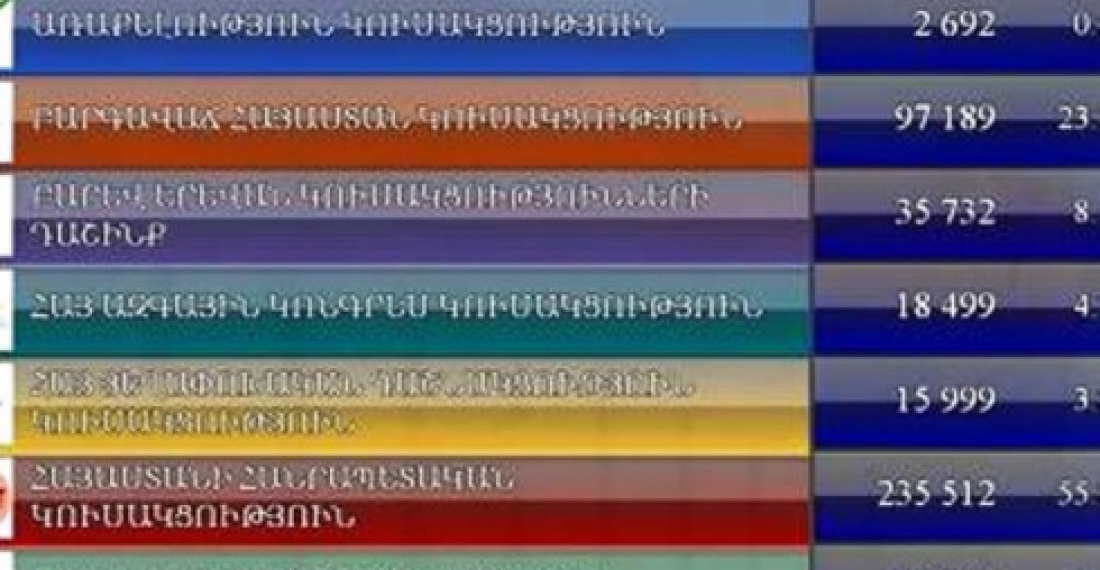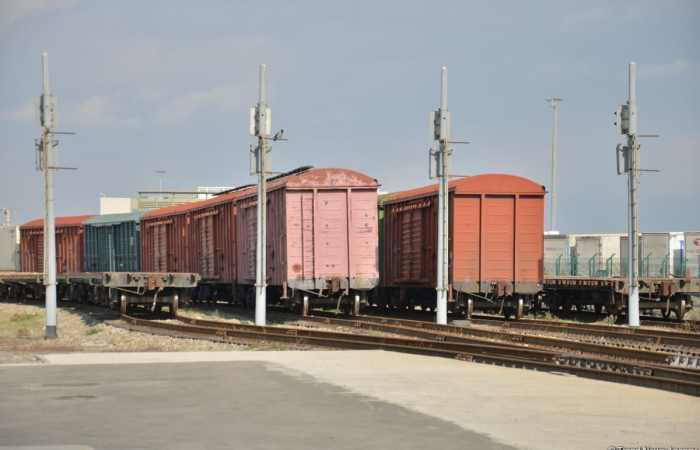Правящая Республиканская партия Армении огдержала убедительную победу на выборах в Совет старейшин Еревана на фоне обвинений в многочисленных нарушениях.
Три партии преодолели 6% порог и будут представлены в городском совете столицы Армении - Республиканская партия Армении, Процветающая Армения и Блок Барев во главе с ее лидером, Раффи Ованнесяном.
Ниже приводим предварительные результаты, опубликованные армянской Центральной избирательной комиссией:
"Республиканская партия Армении" - 55.86% (235,512 голосов)
"Процветающая Армения" - 23.05% (97,189)
"Здравствуй, Ереван" - 8.47% (35,732)
"Армянский национальный конгресс" - 4.39% (18,499)
"АРФ Дашнакцутюн" - 3.79% (15,999)
"Оринац еркир" - 3.73% (15,733)
"Аракелутюн" - 0.64% (2,692)
Политический редактор Commonspace.eu в комментарии сообщает, что "во многом на этих выборах похожие результаты [с парламентскими], где правящая партия сохранила за собой жесткий контроль над столицей Армении на фоне сообщений о массовой фальсификации и злоупотреблений. Оппозиционные партии надеялись, что смогут обеспечить достаточно мест в Совете, нарушив тем самым монополию государства на власть, и обеспечить место "базирования", откуда бросили бы вызов правящей партии. Результаты не предоставили им такой возможности и исключение из Городского Совета партии "АРФ Дашнакцутюн" и "Армянский национальный конгресс" подрывает их роль как национальных партии. "Оринац еркир" (Верховенство закона) оказалась последней по результатам среди партий, которые представленны в парламенте, еще раз указав на потерю популярности среди народа, партия, которая когда-то считалось возможной альтернативой правительству. Партия с 2008 года была в коалиции с РПА, но ее роль была незначительной.
Еще раз повторим, что поступают достоверные сообщения о массовых фальсификациях и нарушениях, которые тщательно задокументированы армией активистов гражданского общества, которые вели наблюдения за процессом. Таким образом, эти муниципальные выборы не сломили тот образ армянской политической сцены, котрый характеризует ее в течение последнего десятилетия."
Источник: commonspace.eu
Фото: Результаты Муниципальных выборов в Ереване, опубликованные на сайте Центральной избирательной комиссии Армении.
Выборы в Ереване: Все теже самые, но еще больше. Правящая Республиканская партия Армении огдержала убедительную победу на выборах в Совет старейшин Еревана на фоне обвинений в многочисленных нарушениях.
Выборы в Ереване: Все теже самые, но еще больше. Правящая Республиканская партия Армении огдержала убедительную победу на выборах в Совет старейшин Еревана на фоне обвинений в многочисленных нарушениях.






